Rob Bignell's Blog, page 257
June 22, 2016
No more sneaking around on tiptoe vs. tip-toe
A lot of 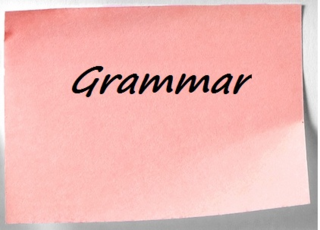 writers have been skulking around this word, hoping that no one notices they don���t know which one is correct. Time to smell the tulips, authors!
writers have been skulking around this word, hoping that no one notices they don���t know which one is correct. Time to smell the tulips, authors!
Tiptoe and tiptoeing are one word. That means no space no hyphen between tip and toe.
Perhaps because of the rhythm of the word, tiptoe seems to need a hyphen. Of the most common reasons for using a hyphen (compound adjective, unusual compound nouns, ages, etc.), tiptoe doesn���t fit any of them, however.
Professional Book Editor: Having your novel, short story or nonfiction manuscript proofread or edited before submitting it can prove invaluable. In an economic climate where you face heavy competition, your writing needs a second eye to give you the edge. I can provide that second eye.
<A HREF="http://ws-na.amazon-adsystem.com/widg... Widgets</A>
Related articles
 Writing Inspiration: Seek another's advice
Writing Inspiration: Seek another's advice Writing Inspiration: Who are you?
Writing Inspiration: Who are you? Word in transition: Co-worker vs. coworker
Word in transition: Co-worker vs. coworker No childish matter: middle age vs. middle-age
No childish matter: middle age vs. middle-age Stretching your knowledge: warm-up vs warm up
Stretching your knowledge: warm-up vs warm up
Product names: To capitalize or not to capitalize?
Whenever using 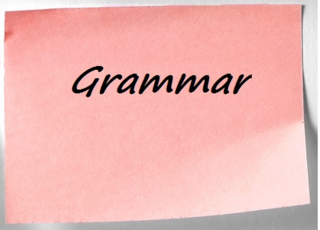 a trademarked names, you will need to capitalize it. Among the common ones that writers tend not to capitalize are Styrofoam, Xerox and Kleenix.
a trademarked names, you will need to capitalize it. Among the common ones that writers tend not to capitalize are Styrofoam, Xerox and Kleenix.
You do not need to include the trademark symbol (which is a capital R inside a circle) with a trademarked name, however. Some corporations want you to do that, but it usually makes text less readable. The capital letter alone suffices in telling readers that you���re using a proper noun.
If the capital letter looks odd, you can opt to use a generic common name for the product, such as foam cup for Styrofoam or facial tissue for Kleenix.
Still, sometimes such terms can be difficult to read and sound unnatural to readers. In other cases, what that common name might be isn���t even evident. What, for example, would be a generic name for Mountain Dew? Your option then is to change the type of soda that appears in the story.
Professional Book Editor: Having your novel, short story or nonfiction manuscript proofread or edited before submitting it can prove invaluable. In an economic climate where you face heavy competition, your writing needs a second eye to give you the edge. I can provide that second eye.
<A HREF="http://ws-na.amazon-adsystem.com/widg... Widgets</A>
Related articles
 Five Great Quotations about the Writing Process
Five Great Quotations about the Writing Process Writing Inspiration: Seek another's advice
Writing Inspiration: Seek another's advice Writing Inspiration: Who are you?
Writing Inspiration: Who are you? Make tables readable in your self-published book
Make tables readable in your self-published book Four ways to write a great tweet that sells books
Four ways to write a great tweet that sells books
June 21, 2016
Four writing prompts: Loneliness
Good stories 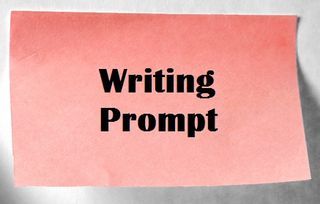 center on the clashing of characters��� goals and motivations. Sometimes a character���s goals and motivations arise from seeking a connection with others. Here are four writing prompts for stories that center on loneliness.
center on the clashing of characters��� goals and motivations. Sometimes a character���s goals and motivations arise from seeking a connection with others. Here are four writing prompts for stories that center on loneliness.
Man vs. nature
What if a man is stranded by himself on an island, in the deep jungle, or on an alien planet? How does he survive the unforgiving environment only to find his greatest challenge may be his own loneliness?
Man vs. society
Our main character constantly senses he is different from others, and his leads to deep feelings of loneliness. What happens when he tries to determine why he is different ��� is there some great secret about him ( or about human existence) that can be revealed?
Man vs. God(s)
What if the main character is driven by a loneliness that money can���t salve? Why is he resitant to embracing the spiritual? How does he ultimately decide to at least explore the spiritual (and find that it at least partially alleviates loneliness)?
Man vs. himself
The proganonist is helping a woman raise her child (which is not his). One day, his true love from the past returns. What arguments go through his head for staying and for taking off with his old love? Perhaps the protagonist feels that he���s always been the one who gives but never receives or makes a decisions that are for himself. What decision does he make?
Professional Book Editor: Having your novel, short story or nonfiction manuscript proofread or edited before submitting it can prove invaluable. In an economic climate where you face heavy competition, your writing needs a second eye to give you the edge. I can provide that second eye.
<A HREF="http://ws-na.amazon-adsystem.com/widg... Widgets</A>
Related articles
 Questions to ask yourself when plotting a story
Questions to ask yourself when plotting a story Zip two disparate stories into one tale
Zip two disparate stories into one tale Consider using counterplotting in your novel
Consider using counterplotting in your novel Develop complex antagonist to maximize conflict
Develop complex antagonist to maximize conflict Rotate third-person limited to avoid issues
Rotate third-person limited to avoid issues
June 20, 2016
Utilize plot device to move story forward
If uncertain 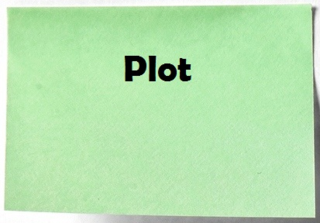 how to advance your story, you may want to employ a plot device. Also known as a plot mechanism, plot devices are any element that moves a story forward. For example, if the main character must locate a magical orb that will give him the power to stop an malevolent force from taking over the kingdom, the plot focuses on that search. The search is a plot device.
how to advance your story, you may want to employ a plot device. Also known as a plot mechanism, plot devices are any element that moves a story forward. For example, if the main character must locate a magical orb that will give him the power to stop an malevolent force from taking over the kingdom, the plot focuses on that search. The search is a plot device.
Authors always must be careful when using a plot device, however. Most have been overdone and even oversatirized. Except to children who are encountering the plot device for the first time, the story won���t appear original. In addition, never use a contrived plot device. Doing so will appear arbitrary to the reader because it undercuts their suspension of disbelief, for the story won���t appear as if it actually could occur in real life (or even in a fantasy-based world).
Some common kinds of plot devices include:
��� Macguffin ��� The story focuses on the protagonist seeking an object (���the macguffin���); what exactly is the object is irrelevant, and at best is vaguely referred to, such as ���the papers��� in a spy thriller or ���the necklace��� in a crime tale.
��� Plot coupon ��� Closely related to (and sometimes) a macguffin, the story focuses on an object that the protagonist must obtain so he has the means to resolve the story���s problem, such as a key that opens a magical box in a fantasy novel.
��� Shoulder angel/shoulder devil ��� In this device, an angel sits on one shoulder and a devil on the other to argue the good and bad sides of a character���s inner conflict. Avoid using this device unless you want your writing to appear hackneyed.
��� Red herring ��� Clues are provided to divert the reader���s attention from the real cause of a problem or from the guilty party. This is commonly used mystery, crime and horror tales.
��� Deus ex machina ��� This occurs when an improbable event occurs that helps resolve an apparently hopeless situation. The ancient Greeks often used this by having a god descend from the heavens to put an end to the matter. Avoid using this device as well.
��� Plot voucher ��� When an object is given to a character that he later uses to achieve his goal, a plot voucher is being employed. A good example are the gizmos that Q supplies to James Bond.
While many of the above are clich��, sometimes they also are necessary to the genre. A detective story, for example, would be sorely lacking if a red herring were not used.
Professional Book Editor: Having your novel, short story or nonfiction manuscript proofread or edited before submitting it can prove invaluable. In an economic climate where you face heavy competition, your writing needs a second eye to give you the edge. I can provide that second eye.
<A HREF="http://ws-na.amazon-adsystem.com/widg... Widgets</A>
Related articles
 Your best writing teacher is a passage that challenged you the most when writing it.
Your best writing teacher is a passage that challenged you the most when writing it. Don't underserve a character in story
Don't underserve a character in story Write winning query letter to editors, agents
Write winning query letter to editors, agents
June 19, 2016
Five Great Quotations about Novels
���On the 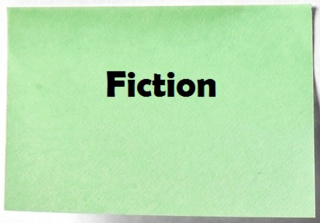 whole, I think you should write biographies of those you admire and respect, and novels about human beings who you think are sadly mistaken.��� - Penelope Fitzgerald
whole, I think you should write biographies of those you admire and respect, and novels about human beings who you think are sadly mistaken.��� - Penelope Fitzgerald
���No one says a novel has to be one thing. It can be anything it wants to be, a vaudeville show, the six o���clock news, the mumblings of wild men saddled by demons.��� - Ishmael Reed
���A good novel tells us the truth about its hero; but a bad novel tells us the truth about its author.��� - G.K. Chesterton
���When I want to read a novel, I write one.��� - Benjamin Disraeli
���A short story is a love affair, a novel is a marriage. A short story is a photograph; a novel is a film.��� - Lorrie Moore
Professional Book Editor: Having your novel, short story or nonfiction manuscript proofread or edited before submitting it can prove invaluable. In an economic climate where you face heavy competition, your writing needs a second eye to give you the edge. I can provide that second eye.
&amp;amp;amp;amp;amp;amp;amp;lt;A HREF="http://ws-na.amazon-adsystem.com/widg... Widgets&amp;amp;amp;amp;amp;amp;amp;lt;/A&amp;amp;amp;amp;amp;amp;amp;gt;
Related articles
 Writing Inspiration: Like the rising sun, my writing casts an ever-widening light upon the world
Writing Inspiration: Like the rising sun, my writing casts an ever-widening light upon the world Use journaling to develop plots for stories
Use journaling to develop plots for stories Five Great Quotations about Biographies
Five Great Quotations about Biographies Five Great Quotations about the Writing Process
Five Great Quotations about the Writing Process Writing Inspiration: Seek another's advice
Writing Inspiration: Seek another's advice
June 18, 2016
I am a successful writer because I decided to be.
Do you 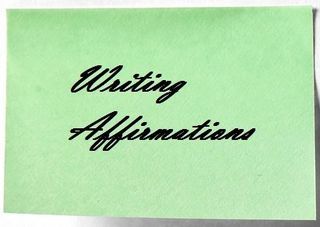 consider yourself a writer who is not ���successful���? Setting aside the discussion about what makes one ���successful,��� the truth is that if you don���t consider yourself such, then you���re not living up to your expectations or vision of what that success looks like.
consider yourself a writer who is not ���successful���? Setting aside the discussion about what makes one ���successful,��� the truth is that if you don���t consider yourself such, then you���re not living up to your expectations or vision of what that success looks like.
You really only have option to become that successful writer: You must begin working toward it.
That will mean sacrifices. For example, do you binge watch Netflix every weekend? Then stop doing so and instead write and revise during that time. Do you find yourself going on binge spring cleanings? Then stop it and outline a scene or edit a draft during that time.
Do you find yourself making excuses for why you are not a successful writer? Those excuses are what need to be cut or done more efficiently.
Sure, simply dedicating more time to writing alone won���t make you successful. You also need to read books like those you want to write and need to constantly learn about the craft of writing (not to mention self-publishing and book marketing). But the less you write, the greater the odds are against you ever being successful.
I am not advocating that you shirk your responsibilities. Yes, you must take care of the children, must maintain a career for an income, must keep physically and emotionally fit. But you can do all of that and still be a successful writer. Many authors do so.
You chose who you want to be by the decisions you make. Successful writers recognize this and choose options that allow them to achieve.
So the choice is yours. I hope you decide to be successful!
Professional Book Editor: Having your novel, short story or nonfiction manuscript proofread or edited before submitting it can prove invaluable. In an economic climate where you face heavy competition, your writing needs a second eye to give you the edge. I can provide that second eye.
&amp;amp;amp;amp;amp;amp;amp;amp;amp;amp;amp;lt;A HREF="http://ws-na.amazon-adsystem.com/widg... Widgets&amp;amp;amp;amp;amp;amp;amp;amp;amp;amp;amp;lt;/A&amp;amp;amp;amp;amp;amp;amp;amp;amp;amp;amp;gt;
writing affirmations
Related articles
 Writing Inspiration: Explore then strive
Writing Inspiration: Explore then strive Writing Prompt: Start with last line
Writing Prompt: Start with last line Writing Prompt: Try something risky
Writing Prompt: Try something risky Editing tip: Read for a solution
Editing tip: Read for a solution 'Writing Affirmations' book hits shelves
'Writing Affirmations' book hits shelves
June 17, 2016
What to do if your press release is ignored
A press  release sent to traditional media and bloggers can go a long way toward generating interest in and sales for your book. Retailers seeing the article or blog may ask to carry your book, other media may call to write an article of their own, and a few readers spotting the article will purchase the title.
release sent to traditional media and bloggers can go a long way toward generating interest in and sales for your book. Retailers seeing the article or blog may ask to carry your book, other media may call to write an article of their own, and a few readers spotting the article will purchase the title.
Sometimes, your press release will be ignored, though. There are any number of reasons why this might have occurred. The media you sent the release to simply may not have had space to run it. Perhaps an editor set it aside to be included in a broader story that somehow fell by the wayside. Maybe they simply had a policy against running press releases about self-published books. Most likely the angle you used simply didn���t grab their attention as newsworthy.
Don���t fret. If the media ignored your press release, simply come back with something different.
Let some time pass, at least a few weeks, possibly even a few months. Perhaps a new editor will have arrived on the scene, the reporter who was going to work on the story will be reminded of it, maybe policies have changed.
As your first press release probably focused on the angle that a local author just released a book, that���s outdated, so you���ll need a new approach (Always emphasize, though, that you���re a local author, in tandem with this approach). Some possibilities include:
��� Your book tops a bestseller list ��� You didn���t just release book, which hundreds of people do everyday, but you���ve stood out from the crowd. You���ve done something distinguishable, and that makes you newsworthy.
��� Local public appearance for a book reading or presentation ��� An event at a local retailer or public library usually warrants at least a mention in an events calendar for most media outlets.
��� Tie it to a seasonal news event or anniversary ��� Did you write a novel about campaign hijinks in a presidential election? Every four years in October, your novel is newsworthy. Did you write a history of the Beatles? The anniversary of their 1964 arrival in America or their April 1970 breakup are perfect calendar dates to pitch your book.
Professional Book Editor: Having your novel, short story or nonfiction manuscript proofread or edited before submitting it can prove invaluable. In an economic climate where you face heavy competition, your writing needs a second eye to give you the edge. I can provide that second eye.
&lt;A HREF="http://ws-na.amazon-adsystem.com/widg... Widgets&lt;/A&gt;
Related articles
 Writing Inspiration: My words can light the way for someone else on a dark path.
Writing Inspiration: My words can light the way for someone else on a dark path. What are 'book specs' on a press release?
What are 'book specs' on a press release? What is a 'platform' when promoting a book?
What is a 'platform' when promoting a book? How many words is a novella?
How many words is a novella?
June 16, 2016
Use creative fiction elements in nonfiction book
Among the 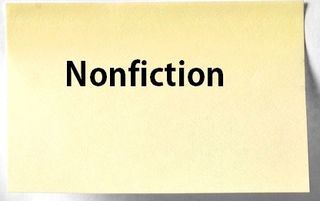 biggest mistakes beginning writers of nonfiction books make is to write text as if it were an encyclopedic rendering of information or an academic lecture. This straightforward, just-the-facts approach invariably comes off as dry and eventually will bore most readers.
biggest mistakes beginning writers of nonfiction books make is to write text as if it were an encyclopedic rendering of information or an academic lecture. This straightforward, just-the-facts approach invariably comes off as dry and eventually will bore most readers.
Instead, you can use elements of creative fiction elements to pep up your nonfiction book. There are several different techniques used in novels and short stories that can work in nonfiction.
Scene
In a scene, you recreate an actual incident that occurred to you. For example, if writing a travelogue about driving cross country, you might tell about the time your tire went flat in the long expanse of empty Arizona desert and there is no cell phone service. You show rather than tell what occurred. The scene, however, must have a point to it. In the travelogue, it might be to suggest how even in our technological era in which we���re always plugged in, there still are places in America where one can be horribly helpless; showing this can deliver the message more powerfully than telling it.
Description
Another technique is describing what a place, person or object looks like. These details usually appeal to our five senses. For example, in the travelogue, the author might describe how the Front Range of the Rocky Mountains rises out of the horizon as approaching it from eastern Colorado. Such imagery gives the reader a sense of being there, of experiencing it with you.
Dialogue
Another creative fiction element that can be used is including a conversation between people. This helps bring alive the person the narrator is talking with. It works especially well if that person has a colorful personality and responds in an unanticipated way. Perhaps in the travelogue the conversation with an old timer at a gas station in a small Utah town is repeated; this could give a flavor of the area and show the difference in viewpoints of locals to those traveling through.
Suspense
In fiction, the intensity increases as the story unfolds, as the reader waits to see how it all ends. This sense of anticipation also can be utilized in nonfiction. In the travelogue, the narrator may be trying to obtain a goal by driving across the country and saves the ���holy grail��� destination for last; suspense can be created by keeping the reader guessing if he actually will make it. Individual scenes and chapters also can be packed with suspense.
When using any of these techniques, always be sure that you���re being truthful about what occurred. Making up something so that the element works only undercuts the validity of your nonfiction work.
Professional Book Editor: Having your novel, short story or nonfiction manuscript proofread or edited before submitting it can prove invaluable. In an economic climate where you face heavy competition, your writing needs a second eye to give you the edge. I can provide that second eye.
&lt;A HREF="http://ws-na.amazon-adsystem.com/widg... Widgets&lt;/A&gt;
Related articles
 Writing Inspiration: Explore then strive
Writing Inspiration: Explore then strive Writing Inspiration: 'The pleasure of each word I write is returned to me multiplied.'
Writing Inspiration: 'The pleasure of each word I write is returned to me multiplied.' How many words is a novella?
How many words is a novella? Writing prompt: Coming up with an opening line
Writing prompt: Coming up with an opening line
June 15, 2016
Which one? Single handedly vs. single-handedly
Of these 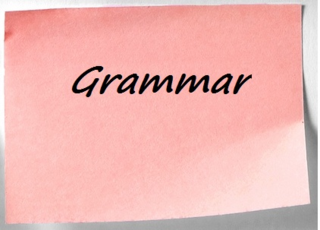 two words, which one is correct: single handedly (no hyphen) or single-handedly (hyphen)?
two words, which one is correct: single handedly (no hyphen) or single-handedly (hyphen)?
Use a hyphen when combining these two words into one. That���s because together the two words act as one part of speech. Typically, single is an adjective, but in this case it works as an adverb. To wit, The brave starship captain single-handedly defeated the alien warrior.
A note that in British English, single-handed is preferred while American English tends to add the ly and more frequently uses single-handedly.
Professional Book Editor: Having your novel, short story or nonfiction manuscript proofread or edited before submitting it can prove invaluable. In an economic climate where you face heavy competition, your writing needs a second eye to give you the edge. I can provide that second eye.
&amp;lt;A HREF="http://ws-na.amazon-adsystem.com/widg... Widgets&amp;lt;/A&amp;gt;
Related articles
 One or three? Nonetheless vs. none the less
One or three? Nonetheless vs. none the less Take the road right: Traveled vs. travelled
Take the road right: Traveled vs. travelled Stretching your knowledge: warm-up vs warm up
Stretching your knowledge: warm-up vs warm up Make tables readable in your self-published book
Make tables readable in your self-published book Five Great Quotations about the Writing Process
Five Great Quotations about the Writing Process
June 14, 2016
Four writing prompts: Jealousy
Good stories 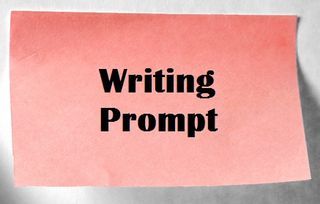 center on the clashing of characters��� goals and motivations. Sometimes a character���s goals and motivations arise from desiring what another has, especially in a relationship. Here are four writing prompts for stories that center on jealousy.
center on the clashing of characters��� goals and motivations. Sometimes a character���s goals and motivations arise from desiring what another has, especially in a relationship. Here are four writing prompts for stories that center on jealousy.
Man vs. nature
What if the antagonist���s jealousy leads him to banish a loved one to a wilderness. How does she overcome the natural dangers of this exile? What does she learn from this that allows her to first survive then thrive?
Man vs. man
The protagonist discovers his best friend is dating the woman he���s always longed for from afar. Overcome with jealousy, he competes with his best friend for the heart of this woman. How does he do that? Who will the woman decide is the better man (if either one!)?
Man vs. society
Our main character is jealous of others in an organization he belongs to or company he works for. He believes they are wealthier, better traveled, more cultured than he is. He decides to prove he is second to none, but there are those he envy who wish to keep him in his place. How does he deal with them ��� and with his inner demons?
Man vs. himself
Our main character finds that his disvorced ex is now happy with a new man. Rather than be angry at her, he is jealous of the new man, especially in light that he has lost everything he knew himself to be ��� a married man, a father who saw his children every day, his nice home and earnings. How does he overcome this jealousy before it eats him from the inside out, destroying what little he has left?
Professional Book Editor: Having your novel, short story or nonfiction manuscript proofread or edited before submitting it can prove invaluable. In an economic climate where you face heavy competition, your writing needs a second eye to give you the edge. I can provide that second eye.
&amp;amp;amp;lt;A HREF=&amp;quot;http://ws-na.amazon-adsystem.com/widg... Widgets&amp;amp;amp;lt;/A&amp;amp;amp;gt;
Related articles
 Consider using counterplotting in your novel
Consider using counterplotting in your novel Zip two disparate stories into one tale
Zip two disparate stories into one tale Questions to ask yourself when plotting a story
Questions to ask yourself when plotting a story How to create an interesting villain for your story
How to create an interesting villain for your story Writing Prompt: Take your story forward
Writing Prompt: Take your story forward



